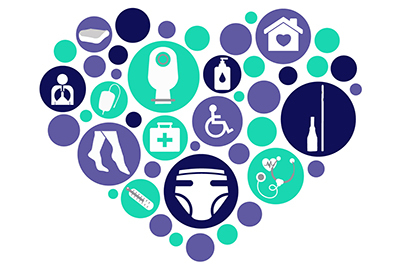
Service, Quality, and Value
Express Medical Supply is a family-run medical supply store that has placed customers first since 1994. We believe that offering quality medical supplies, such as adult diapers and wheelchairs, at discounted prices is paramount to the satisfaction of our customers. Each order is double checked before it is shipped to ensure that you receive the right medical supplies at the best possible quality. Express Medical Supply is perfectly located in suburban St. Louis, Missouri. This centralized location helps reduce shipping times and provides fast delivery of your quality medical supplies. We want you to be completely satisfied with your shopping experience. Please let us know how we can serve you better by contacting us either by phone or sending us a message. We care about the quality of our products and we strive to provide the best possible medical supplies at the highest value. Please note: Express Medical Supply does NOT accept or bill insurance including Medicare and Medicaid. Payment may be made with a major credit card or using Paypal.

Excellent Customer Service
Express Medical Supply is available by phone Monday - Thursday, 8:30 am to 5:00 pm and Friday from 8:30 am to 4:00 pm. Our customer service team can help you place orders over the phone or on our website, find the special product you need, as well as answer your product questions. Our team is able to participate in on-going product knowledge training in order to better assist you when you need help with your order or just have a question about a product.

Order by Phone
Express Medical Supply customer service representatives are available: Monday - Thursday, 8:30 am to 5:00 pm and Friday from 8:30 am to 4:00 pm, Central Time at (800) 633-2139. If you have any questions about ordering medical supplies online or if you would like to place an order over the phone, please feel free to call us. We would love to help.

The Medical Supplies You Need
Express Medical Supply offers a complete selection of ostomy supplies, catheter supplies, as well as many products that help support your current care routine such as underpads, incontinence supplies, and even mobility aids. We offer a wide variety of products made by top manufactures like Coloplast, Convatec, and Hollister.

Quick & Careful Shipping
Our warehouse and office are located in Saint Louis, MO. This central location allows us to ship anywhere in the United States as quickly as possible. Our warehouse staff is trained in the proper way to ship medical supplies so they arrive to you in good condition. Our staff use a triple check system that helps cut down on human error and stills maintains speed so your order ships out quickly and accurately. If you would like your medical supplies to be shipped discretely, that option is available for free on your account page. Shipping is free on orders greater than $149, even large items such as wheelchairs or transport chairs. Compression stockings and socks always ship for free. Orders less than $149 are shipped for $9.95 in the contiguous United States. Shipments to Alaska, Hawaii, Puerto Rico, Guam, and the Virgin Islands do not qualify for free shipping.

Scholarship Program
Your creative writing could earn a scholarship! You could win $500 to put toward your college expenses. The winner of our Express Medical Supply Scholarship contest will have their answer featured on our social media. Use your imagination, while following the rules and you could be our scholarship winner. The Express Medical Supply Scholarship contest is open for part time and full time college students attending school in the United States. One entry will be selected as the winner and will be awarded the $500 scholarship. Our goal is to contribute to higher education and learning by offering the winning student financial assistance to help cover the expenses of tuition and books.


